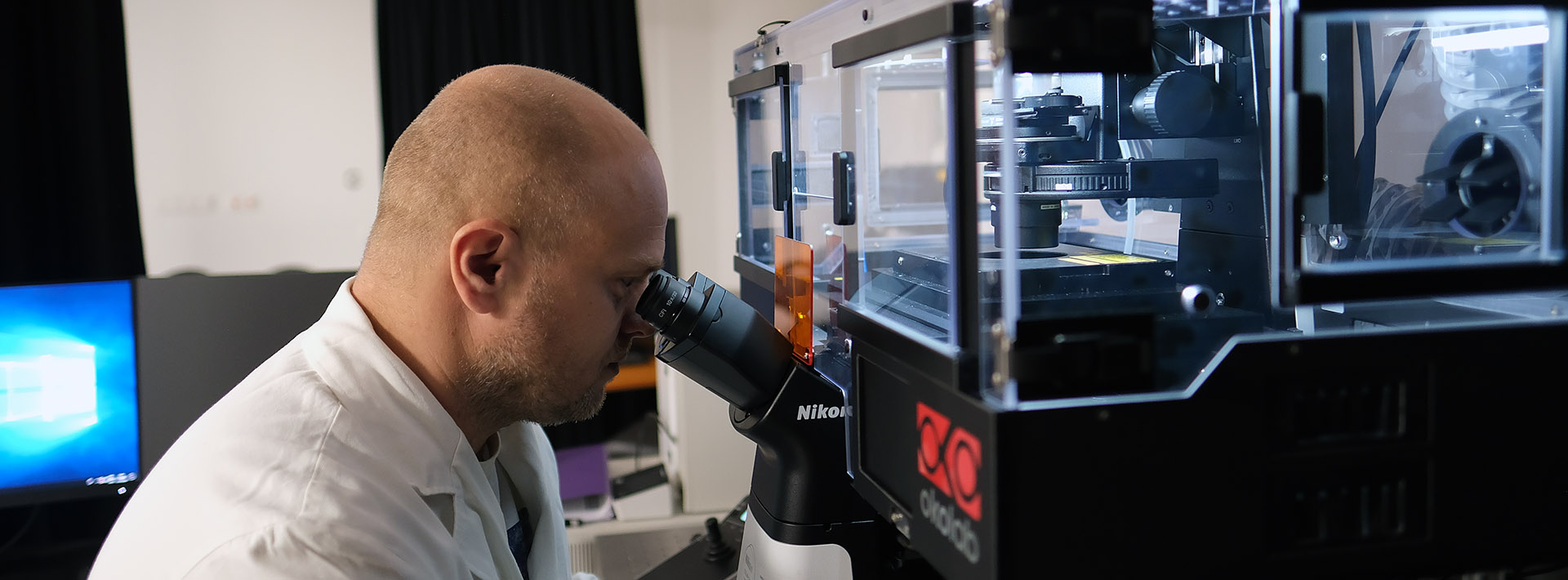Data
Official data in SubjectManager for the following academic year: 2020-2021
Course director
-
Dr. Ollmann Tamás
egyetemi adjunktus,
Institute of Physiology -
Number of hours/semester
lectures: 24 hours
practices: 0 hours
seminars: 0 hours
total of: 24 hours
Subject data
- Code of subject: OPF-HL2-T
- 2 kredit
- Pharmacy
- Optional modul
- spring
-
Course headcount limitations
min. 1 – max. 50
Available as Campus course for 10 fő számára. Campus-karok: ÁOK ETK GYTK TTK
Topic
Discussion of physiological topics, that not belong to the core subject (based on real examples and case studies). The aim of the subject is to understand the deep, advanced physiological knowledge and complete the core subject. That develops the problem-solving skills necessary in the clinical practice and/or during scientific research. Furthermore, it can help to understand another subjects (pathophysiology, pharmacology) based on physiology as well. The course can be useful for dentistry and pharmacy students as well, since numerous topics are realted to dentistry or pharmacy as well. The course can contribute to the practical application of evidence based medicine, as well as to interpret the (sometimes contradictory) scientific literature. Topics of the second semester: endocrine system, nervous system and sensory organs.
Lectures
- 1. Endocrine system. Hypophysis. The importance of balance. - Dr. Ollmann Tamás
- 2. Adrenal cortex. The unconscious cushingoid patient. - Dr. Ollmann Tamás
- 3. Adrenal medulla. Autonomic nervous system. The patient with too much stress. - Dr. Ollmann Tamás
- 4. Female sexual functions. The mysterious symptoms of a young lady. - Dr. Ollmann Tamás
- 5. Male sexual functions. The regulation of sexual behaviour. Differences from the average. - Dr. Ollmann Tamás
- 6. Thyroid gland. The case of the hyperactive child. - Dr. Ollmann Tamás
- 7. Calcium and phosphate. Physiology of the bone. The patient wiht muscle spasm. - Dr. Ollmann Tamás
- 8. Blood sugar level and diabetes. What should we take into consideration? - Dr. Ollmann Tamás
- 9. General properties of the nervous system. Reflexes. Are we just a neural network? - Dr. Ollmann Tamás
- 10. Pyramidal system. From decortication to the spinal shock. The patient with stroke. - Dr. Ollmann Tamás
- 11. Extrapyramidal system. Parkinson, or not? Deep brain stimulation. - Dr. Ollmann Tamás
- 12. The cerebellum and being drunk. - Dr. Ollmann Tamás
- 13. The somatosensory system. How can we relieve pain? - Dr. Ollmann Tamás
- 14. The eye. Optics. The patient with blurred vision. - Dr. Ollmann Tamás
- 15. The retina and the visual pathway. Visual field defects. - Dr. Ollmann Tamás
- 16. The ear. The patient with vertigo. - Dr. Ollmann Tamás
- 17. Smell and taste. The patient who cannot recognize smells. - Dr. Ollmann Tamás
- 18. EEG, sleep. The doctor’s epileptic seizure. - Dr. Ollmann Tamás
- 19. Hypothalamus. Size doesn’t matter. - Dr. Ollmann Tamás
- 20. Limbic system. Motivations. Emotions. Play and addiction. - Dr. Ollmann Tamás
- 21. Monoamines. Schizophrenia. Autism and gut flora. The difficulties with pshychiatric medication. - Dr. Ollmann Tamás
- 22. Learning and memory. The patient wiht amnesia. - Dr. Ollmann Tamás
- 23. The functions of different areas of the brain. Effects of brain injury on personality and speech. - Dr. Ollmann Tamás
- 24. Brain research: from the rodents to the human. Addiction. The life of a clinician, scientific researcher and university lecturer. - Dr. Ollmann Tamás
Practices
Seminars
Reading material
Obligatory literature
Literature developed by the Department
The slides will be available.
Notes
Recommended literature
Guyton and Hall: Textbook of Medical Physiology
Costanzo: Physiology Cases and Problems (Board Review Series)
Carroll: Problem-Based Physiology
Conditions for acceptance of the semester
Maximum of 25 % absence allowed
Mid-term exams
Writing of case study, online test.
Making up for missed classes
Not necessary, but it is possible in another language.
Exam topics/questions
The topics of the lectures.
